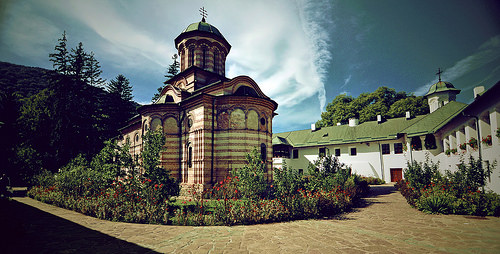Romania, with its rich culture, natural beauty and fairly high standard of living, has a lot to offer expats of all ages. However, many people are apprehensive about moving to this country, especially if they have children of school-going ages. These are usually the formative years for children, and all parents want their kids to have nothing but the best in terms of education, extra-curricular activities, and cultural experiences.Education
Expats moving to Romania often find that they have a various options when it comes to education. Foreigners living in this country have several well-reputed Public, Private and International Schools to choose from. Some parents also opt for homeschooling their kids, though this practice is a lot more complicated in Romania compared to other Western nations.
Public Schools
There are many Public Schools across the country, where all the subjects are taught in Romanian. Education at these schools is free for residents. Children are graded on a scale of 1 to 10 and 5 is the minimum passing mark. Most of the good Public Schools have a long waiting list and as a result, tend to be a bit overcrowded. To accommodate a higher number of students comfortably, some of the schools offer both morning and afternoon shifts. The advantage of studying in a Public School is that expat children make a lot of local friends and tend to pick up the language quickly. However, education norms in this country aren’t as strict as the US and the UK. These schools therefore have a reputation for lack of discipline. For example, you may hear about a teacher leaving classes unattended for several minutes. Some of them also threaten to spank the children, though they rarely, if ever, really do it. Public schools are the least popular among expats compared to the other options.
Private Schools
Since the fall of communism, the number of Private Schools in the country has increased. These schools are very expensive and are therefore exclusive, making them more popular with expats. Private Education is available from Kindergarten level right up to high school. Because of better infrastructure, most private schools offer their students a variety of extracurricular activities like dancing, dramatics, sports and art. Discipline is much higher in these schools but on the downside, they don’t follow the national curriculum.
International Schools
International Schools are the most popular choice of education among expats living in Bucharest. They offer education and activities of the highest quality. While these schools are the most expensive, they are usually cheaper than private education in the US and the UK. Most of the International Schools are affiliated with the International Baccalaureate (Swiss), GCSE (British) or GCE (British) Boards. Unfortunately, these schools cannot be easily found in other cities across the country. Moreover, expats have to submit several documents to get admission to an international school.
Home schooling
The Association of Home-Schooling in Romania (AHSR) does not recognize homeschooling by parents as formal education. Parents therefore need to have their homeschooled children sign up with an “Umbrella School” that will certify their learning and education procedure. Some of these schools also provide the curriculum or a book list that the child should each year.
Activities
Romanians give a lot of importance to sports and other physical activities, especially football, gymnastics and tennis. Most schools and recreational clubs have classes especially for children. During the summers, adults and children often participate in hiking, cycling, canoeing and trekking. Winter activities for children generally include skating, skiing and tobogganing.
Cultural Experiences
Festivals in Romania are abundant, which can make things very interesting for children, especially expats. The significance of each occasion may vary from religious to life-marking events. Some festivals are more like public celebrations and are therefore highly enjoyed by children.
Romanian cuisine includes a mixture of Austrian, Oriental and French flavors with its own unique touch. While the food is tasty, children may take a longer time to get used to the flavors. Restaurants in the regional areas are likely to serve nothing but Romanian food. The expats generally take their kids to international food chains, at least in the beginning.
Relocating to a foreign country is no picnic and moving with children can make the experience all the more stressful for parents. Fortunately, children often actually adjust to a new environment faster than adults usually do.
Have you moved abroad with children? What did you do to help them adjust? Share your thoughts in the comments.

